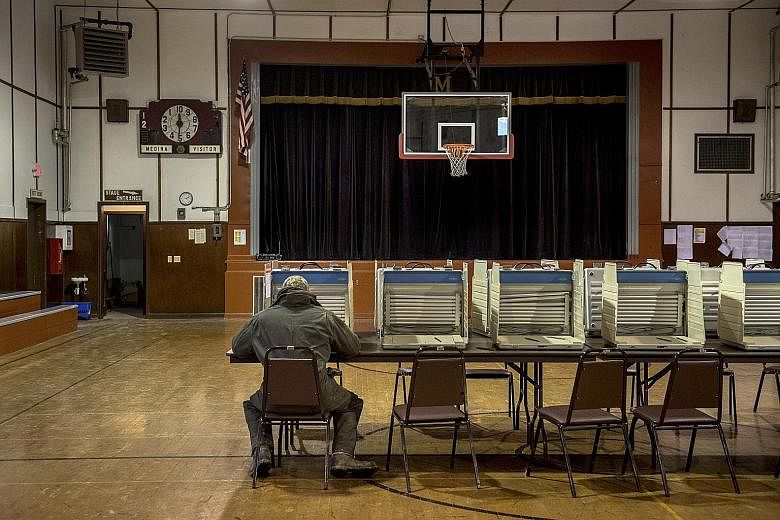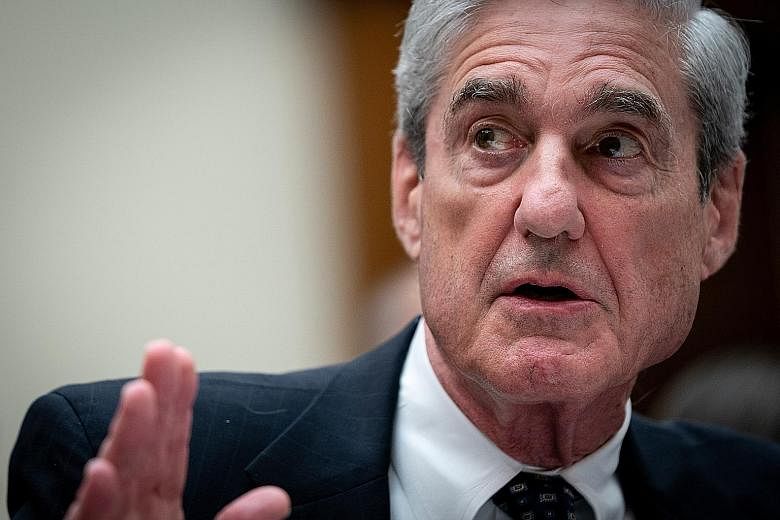The US Congress has remained divided on measures to secure America's elections, despite fresh warnings that Russia had interfered extensively in the 2016 election and continues to be a threat for 2020.
A bipartisan report on Thursday from the Senate Intelligence Committee found that Russia targeted all 50 US states in 2016, scanning election-related state infrastructure, mapping networks and looking for vulnerabilities.
The report quoted former president Barack Obama's cyber security coordinator, Mr Michael Daniel, as having concluded that the Russians had attempted to intrude in all 50 states, based on the extent of the activity and the apparent randomness of the attempts.
Intelligence that developed last year backed Mr Daniel's assessment, noted the 61-page report, which was at times heavily redacted.
"The Russian government directed extensive activity, beginning in at least 2014 and carrying into at least 2017, against US election infrastructure at the state and local level," it said.
The report concluded that:
• Russia exploited America's decentralised voting system and gaps between federal authorities and state election officials.
• Warnings from federal officials about Russian cyberthreats went to the wrong people or contained insufficient information.
• Local election officials, who are primarily in charge of running elections, were left insufficiently warned or prepared to handle an attack from a hostile country.
However, the Senate committee did not find evidence that any votes were changed or that any voting machines were manipulated.
The report was the first volume of findings from the Senate's two years of investigation into Russian attempts in 2016 to access election infrastructure. It was based on testimony from state election officials, Obama administration officials and intelligence officials and analysts.
It contained eight pages of recommendations, including urging states to take urgent steps to replace outdated and vulnerable voting systems.
The report echoed former special counsel Robert Mueller's warning a day earlier that Russia was continuing its efforts and would be joined by others.
At the hearing on his Russia investigation, he told Congress: "It wasn't a single attempt. They're doing it as we sit here. And they expect to do it during the next campaign."
But the warnings made little headway in bridging the partisan divide on how to better protect America's election infrastructure.
Republican senators blocked three election security and cyber security Bills from Democrats on Thursday, calling them partisan or unnecessary.
Republicans who oppose further measures argue that Congress has already responded to election security needs for the upcoming election and has set aside funds in earlier spending Bills.
One Bill contained US$775 million (S$1.1 billion) to help states secure their voting systems, required backup paper ballots, and banned voting systems from being connected to the Internet.
The Bill was passed by the Democrat-controlled House last month but received only one vote from Republicans, who saw it as federal overreach curtailing the ability of states to choose the election system best suited to their needs.
Democrats, however, take the line that stronger federal action is needed.


